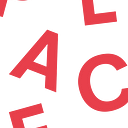Patterns Across Places (4)
July 2020
Max French
Our first three lockdown blogs (April, May and June) based on our monthly insights from Place Action Inquiry partners captured a sudden and dramatic transition as places adapted to the pandemic.
This month’s data, drawn from completed ‘noticing frameworks’, came from a different point of transition as lockdown was eased. Relaxations to home working, public transport use, social contact and distancing made direct service provision possible and a broad outline for further easing encouraged providers to plan services and actions in a longer timeframe.
Green shoots emerging?
Reports continue that the system is less amenable to learning than in the immediate aftermath of lockdown, with further difficulty sustaining engagement from local partners who found themselves drawn into the mechanics of re-opening or otherwise adapting local services. However, this months’ responses seemed more hopeful, and much of the work frozen in time when COVID-19 hit was now reanimating. With face-to-face meetings possible on the horizon, several of the places began to revisit workplans developed at the beginning of the year. Networks and working groups taking forward distinct pieces of work had begun to reconvene online after long hiatuses, and one response spoke informed us of a re-developed plan spanning the whole year. By no means did this indicate any sort of return to normality, and discussions held by our partners were laden with uncertainty about opening up, and distrust of the government’s timescale for doing so. Instead, responses this month suggest a shift in focus from emergency response to issues with more staying power, like the long road to recovery, who should pay for it, how we can stay safe, how we can plan for a second wave, how we #buildbackbetter.
Learning from the crisis
Given how unprecedented this period of time has been for the Place Action Inquiry, we wondered how transferable the lessons from the past months would be. Responses this month are reassuring, suggesting the crisis provided an opportunity to deepen learning in many areas central to our work. One good example is the three areas which reported efforts to amplify the voice of lived experience in system change efforts. Our lingering assumption was this inherently relational work would be impersonal and superficial without social contact. The development of new methods like remote story gathering, community reporting and online convening challenge that assumption but raised questions: how we can be mindful of inclusivity and diversity of contributions, how we can manage digital exclusion, and how we can capture stories authentically without leading conversations?
Our partners have also explored various ways of deploying Lankelly Chase’s emergency funds, which seems a significant learning opportunity. One respondent spoke about how light touch administration in grant giving enabled funds to be used quickly and flexibly, and remarked this compared favourably to the local authority’s COVID-19 response fund. Another respondent felt that multiple people representing different perspectives and experiences had to be involved in decision making processes to provide challenge and legitimacy.
Two individuals also discussed learning about the significance of persistence — to not rush to action or draw too strongly from immediate setbacks. Blogs from previous months have shown burnout and disorientation are quick to follow otherwise. While the challenges COVID-19 are urgent and changing quickly, many underlying systemic problems are unchanged and require patient, long-term thinking. Responses this month show that crisis response efforts have not been an interruption to normal programming, rather have shed light on longstanding issues at the heart of the Place Action Inquiry. Making time to take stock and step back, while everything else is sucking us inward, appears even more important.
